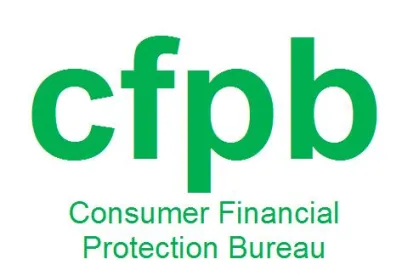The Department of Education (ED) recently delivered a letter to the Consumer Financial Protection Bureau (CFPB) providing notice of its intent to terminate the Memoranda of Understanding (MOUs) between the agencies. The letter is highly critical of the CFPB. The sharp rebuke proclaims ED’s “full oversight responsibility of federal loans” and does not explicitly salvage any part of the agencies’ former cooperation.
Signed by Acting Assistant Secretary of the Office of Postsecondary Education Kathleen Smith and Chief Operating Officer of Federal Student Aid (FSA) Dr. A. Wayne Johnson, the letter was addressed to Director Richard Cordray and dated August 31, 2017. The letter provides that the MOUs will terminate thirty-days after the date of the letter—on September 30th, 2017—as provided by the terms of the MOUs.
The letter references two specific MOUs: the “Memorandum of Understanding Between the Bureau of Consumer Financial Protection and the U.S. Department of Education Concerning the Sharing of Information” (Sharing MOU), dated October 19, 2011; and the “Memorandum of Understanding Concerning Supervisory and Oversight Cooperation and Related Information Sharing Between the U.S. Department of Education and the Consumer Financial Protection Bureau” (Supervisory MOU), dated January 9, 2014.
The Sharing MOU provided that the agencies would collaborate to resolve borrower complaints related to their private education or federal student loans. The Supervisory MOU encouraged additional information sharing with respect to the coordination of student financial services oversight and supervisory activities.
As we have noted, the CFPB began accepting federal student loan complaints in February of 2016. Previously, such complaints were directed to ED. Unlike the expansion of complaints regarding private student loan complaints or online marketplace lender complaints, the CFPB did not publish a press release announcing the new complaint solicitation. Instead, the CFPB referenced the expansion in its midyear update on student loan complaints in August 2016 and its monthly complaint reports from November 2016.
As justification for the split, ED accuses the CFPB of “violating the intent” of the agreements by failing to forward Title IV federal student loan complaints within ten days of receipt and handling complaints itself. The letter provides that the CFPB’s “intervention” caused “confusion to borrowers and servicers who now hear conflicting guidance” related to Title IV loans, and that the “unilateral” action of the CFPB allowed it to usurp ED’s data as a means to expand its jurisdiction—a “characteristic of an overreaching and unaccountable agency.”
The U.S. House of Representatives’ Committee on Education and the Workforce shared the letter as part of a press release. Chairwoman Rep. Virginia Foxx (R-NC) issued a statement praising ED for “taking its authority back from the CFPB,” which was “complicating and undermining” ED’s efforts to serve students. Rep. Foxx criticized the Obama administration for letting the CFPB “abuse its privilege” with respect to student loan oversight because “Congress bestowed the powers to oversee student loans and student loan servicing solely to the Department of Education.”
On the same day as the letter, ED announced a “stronger approach” to FSA oversight, including a broadening of scope, an increase in capacity, and a “more sophisticated strategy.” That strategy includes targeting “illegitimate debt relief organizations, schools defrauding students and institutions willfully ignoring their Clery Act responsibilities.” (The Clery Act requires disclosure of campus security policies and crime statistics.) ED intends to ensure parties understand their new compliance responsibilities and the consequences of non-compliance by “comprehensive” executive outreach. The release also noted FSA’s continued coordination with its “stakeholders”—including the Department of Justice and the Federal Trade Commission—but not the CFPB, which was conspicuously absent from the list.
The letter does not reference the agencies’ joint MOU with the Departments of Veterans Affairs and Defense “to prevent abuse and deceptive recruiting practices by schools serving servicemembers, veterans, spouses and other family members” under a 2012 Executive Order from President Obama. The letter also follows a previous decision to withdraw various memoranda issued by the Obama Administration ED Secretary and FSA that provided policy direction for a new student loan servicing scheme.
While the exact course the CFPB will take remains to be seen, ED has made its position clear that there is no room for CFPB involvement here, and by implication, no room for state regulators or state attorneys general either. In a statement obtained by Politico, CFPB spokesman David Mayorga said that the Bureau seeks further justification as to why ED is terminating the agreements. The Bureau noted that it will “continue to work with” ED towards its shared goals, but also signaled its intent to continue independent enforcement efforts under its “statutory responsibilities to protect student borrowers.”



 />i
/>i

